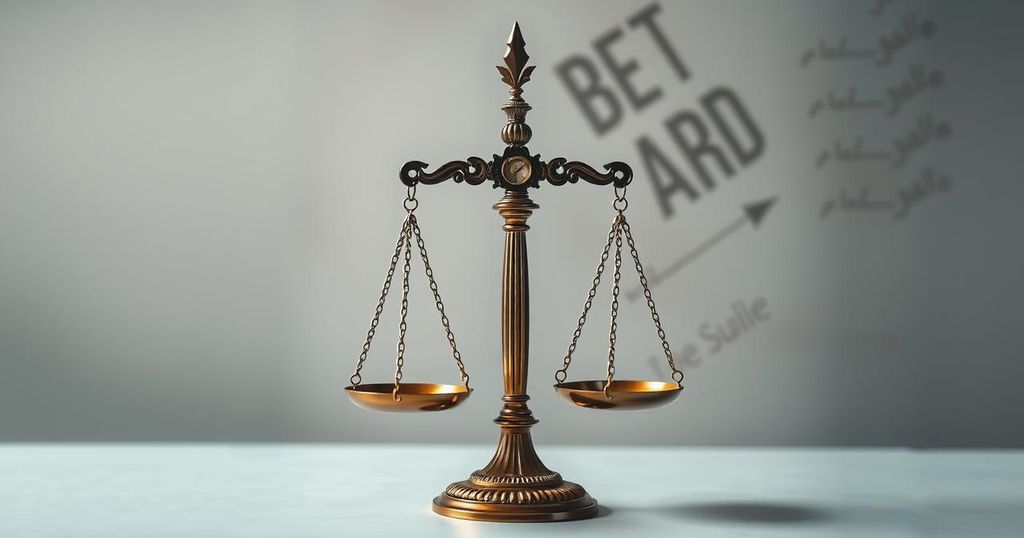Tunisia is set to begin the trial of approximately 40 opposition figures accused of conspiring against state security amid widespread condemnation of its political motivations. Defendants, including prominent critics of President Kais Saied, face serious charges stemming from arrests in February 2023. Concerns over a lack of transparency in judicial processes and fair trial rights have been raised by rights organizations and defense committees.
The trial of several prominent Tunisian opposition figures, accused of conspiring against state security, is scheduled to begin on Tuesday. The case has drawn widespread condemnation from human rights organizations and opposition members, who argue that it is a politically motivated effort to silence dissent. Approximately 40 high-profile defendants include former diplomats, politicians, and media figures who have been critical of President Kais Saied.
Many of these individuals were detained in February 2023 after President Saied labeled them as “terrorists.” They face serious charges, including plotting against state security and affiliation with a terrorist group, which could lead to significant prison sentences. Noteworthy defendants include politician Jawhar Ben Mbarek, former Ennahdha party leader Abdelhamid Jelassi, and Issam Chebbi, a founder of the National Salvation Front (FSN).
President Saied came to power in 2019 amidst Tunisia’s emergence as a democracy following the Arab Spring. However, in 2021, he executed a substantial power grab, and since then, numerous human rights organizations have expressed concern over a decline in civil liberties. The case also implicates activists like Khayam Turki and Chaima Issa, as well as businessman Kamel Eltaief and human rights advocate Bochra Belhaj Hmida, currently residing in France.
Among the accused is French intellectual Bernard-Henri Levy, reflecting concerns that these individuals may have conspired with foreign parties and diplomats. In a statement from his detention, Ben Mbarek remarked that the case pursues “the methodical elimination of critical voices,” denouncing the process as judicial harassment. His sister, Dalila Msaddek, labeled the charges as being based on false testimony.
The defense committee has indicated that the trial will proceed remotely, excluding the detained defendants from attending. Their families and rights advocates argue that proper justice necessitates the defendants being present in court. FSN head Ahmed Nejib Chebbi emphasized that this situation undermines the principles of a fair trial. Former Ennahdha official Riadh Chaibi criticized the trial’s secrecy, highlighting the lack of transparency regarding the witnesses and evidence involved.
The upcoming trial of numerous opposition figures in Tunisia has sparked significant criticism and concern over its political motivations. As these defendants face severe charges amidst claims of unjust treatment, the situation raises critical questions about the status of civil liberties and judicial integrity in Tunisia. The call for transparent and fair proceedings reflects a broader struggle against political repression in the country.
Original Source: www.dailysabah.com




